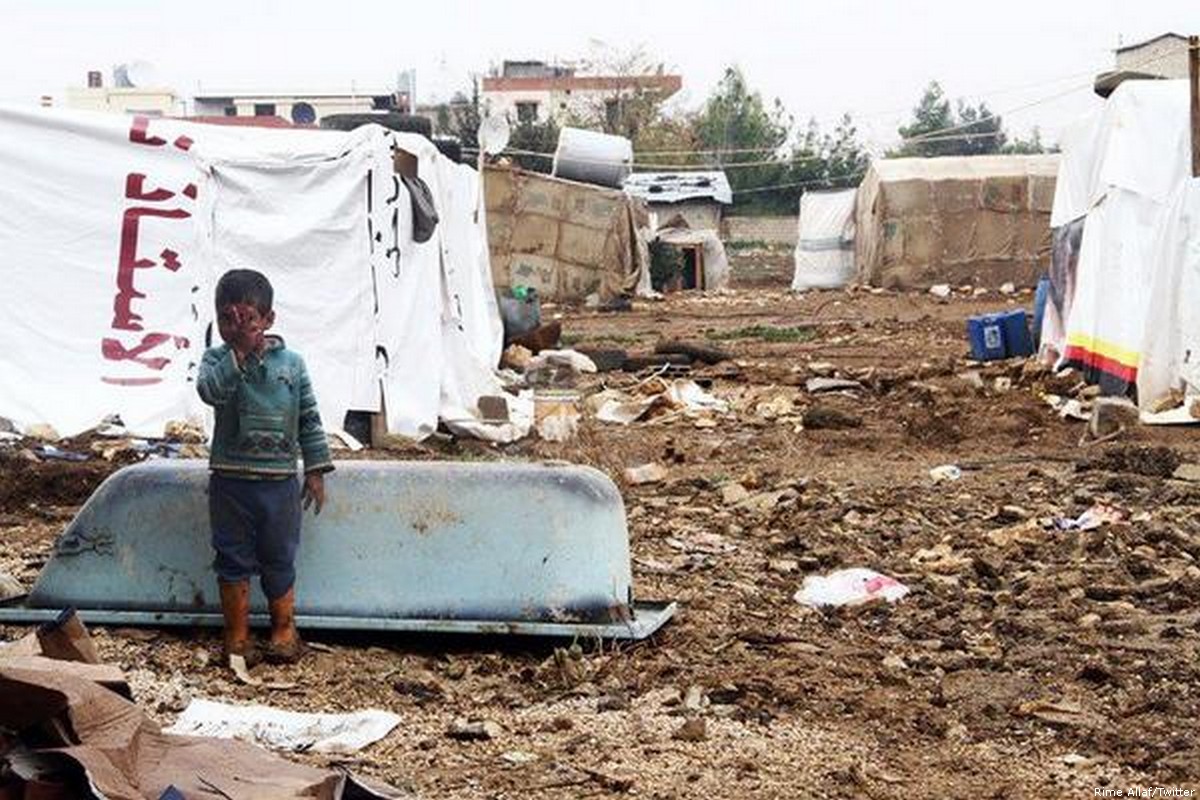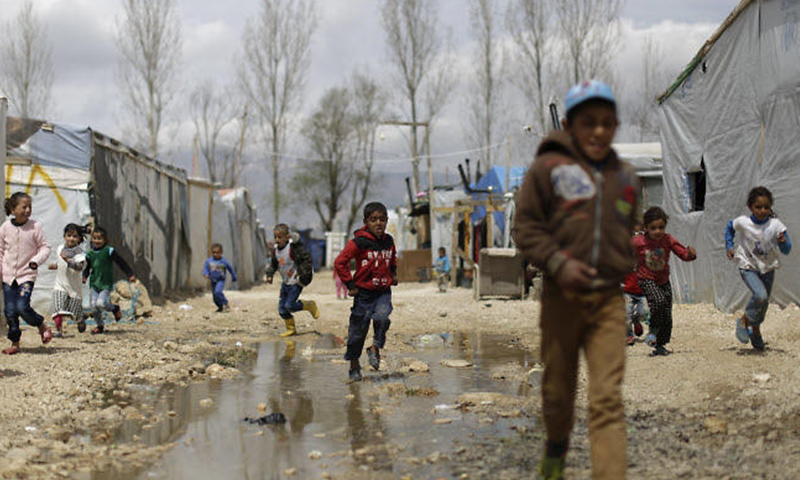أشارت نتائج التقرير إلى أن ما يقرب من 9 بين كل 10 أسر لاجئين سوريين هم مدينون، مع اضطرار 93 في المائة إلى الاقتراض لدفع ثمن الطعام.
22 / كانون أول / ديسمبر / 2020

*مع العدالة | ترجمة – أخبار Middle East Monitor
ذكر تقرير للأمم المتحدة نشر منذ أيام أن تسعاً من أصل عشر عائلات سورية لاجئة في لبنان تعيش في فقر مدقع.
وحذر التقرير أن ما يقرب من 89 في المائة سيكافحون من أجل تلبية احتياجاتهم الأساسية بحلول نهاية العام، بعد أن كانت 55% في عام 2019.
وألقت المفوضية السامية للأمم المتحدة لشؤون اللاجئين وبرنامج الأغذية العالمي وصندوق الأطفال (اليونيسيف) باللائمة على الأزمة الاقتصادية في لبنان، وانهيار العملة وجائحة “كورونا” وانفجار بيروت في التراجع السريع.

ونقلت عن “ميراي جيرار“، ممثلة المفوضية في لبنان، قولها: “لقد أثرت الأزمات المتتالية على جميع المجتمعات في لبنان – اللبنانيين واللاجئين والمهاجرين وغيرهم – والأكثر ضعفاً هم المتضررون بشكل كبير“.
“إن وضع اللاجئين السوريين في لبنان يتدهور منذ سنوات، لكن نتائج استطلاع هذا العام هي مؤشر مثير على مدى صعوبة اجتيازهم ليوم آخر”.
وحذرت جيرار لاحقاً العائلات السورية اللاجئة في لبنان من أنها قد “تواجه أصعب شتاء لها حتى الآن، وتتحدى عوامل الشتاء مع عدم توفر التدفئة والأمان”.
يستضيف لبنان ما يقدر بنحو 1.5 مليون سوري، أي ما يعادل ربع سكان البلاد بالكامل. ومع ذلك، تكافح البلاد مع أسوأ أزمة اقتصادية منذ نهاية الحرب الأهلية في عام 1990، ويرافق ذلك، ارتفاع معدلات البطالة، والتضخم وانهيار العملة.

“صورة لأطفال سوريين في مخيمات لبنان في ظروف مناخية سيئة”-إنترنت.
وأشارت نتائج التقرير إلى أن ما يقرب من 9 بين كل 10 أسر لاجئين سوريين هم مدينون، مع اضطرار 93 في المائة إلى الاقتراض لدفع ثمن الطعام.
وبحسب التقرير، تضاعفت أسعار المواد الغذائية في لبنان ثلاث مرات تقريباً منذ تشرين الأول/ أكتوبر 2019.
وتبين أن نصف عائلات اللاجئين السوريين الذين شملهم الاستطلاع يعانون من انعدام الأمن الغذائي، بعد أن كانت النسبة 28 في المائة عام 2019.

كما وجد الباحثون أن عدد الأسر التي تخضع لنظام غذائي غير كافٍ قد تضاعف مقارنة بالعام السابق، حيث ارتفع العدد من 25 إلى 49 في المائة في 12 شهراً.
وتبيّن أن عدد الأسر التي تخفّض حصص الوجبات اليومية أو تكررها آخذ في الازدياد. وأضاف التقرير أن الأسر اللاجئة لم يكن لديها سوى فرص محدودة للحصول على التعليم عن بعد خلال انتشار وباء “كورونا”، وغالباً ما يرجع ذلك إلى ضعف أو عدم وجود “إنترنت”.

 Eng
Eng